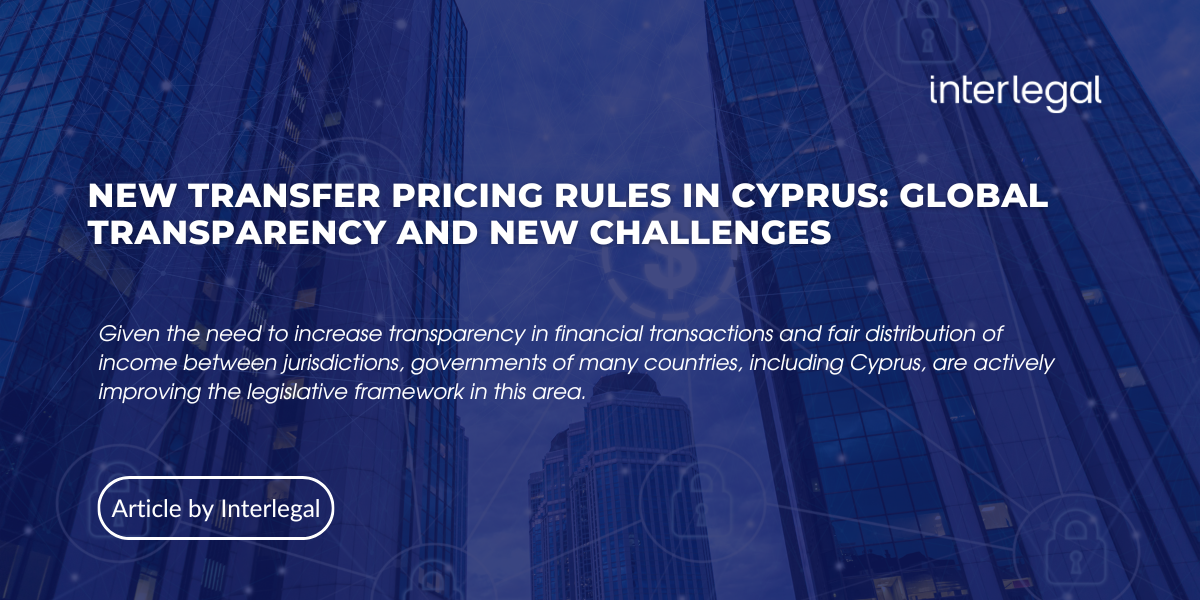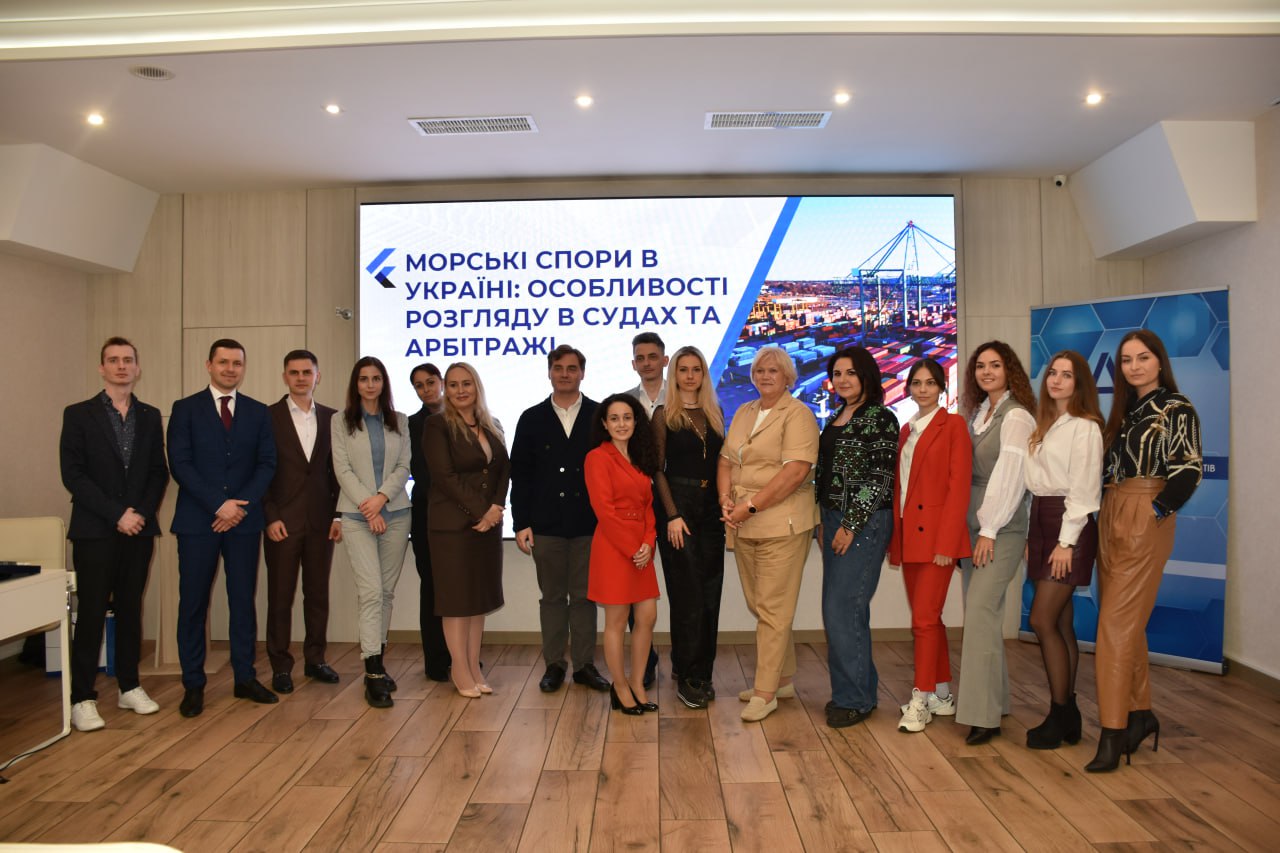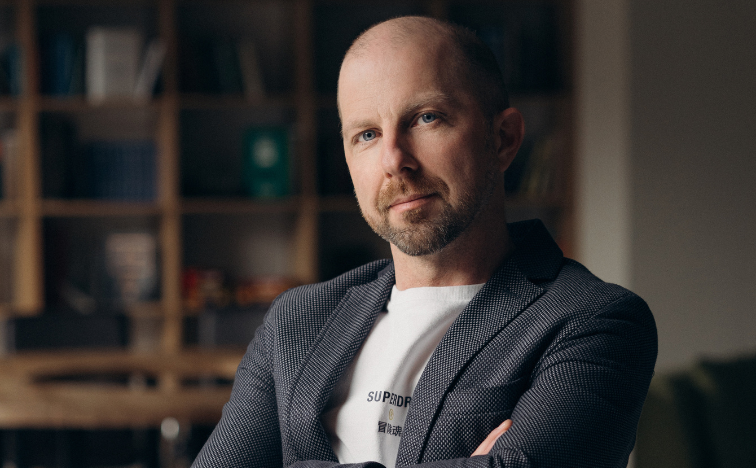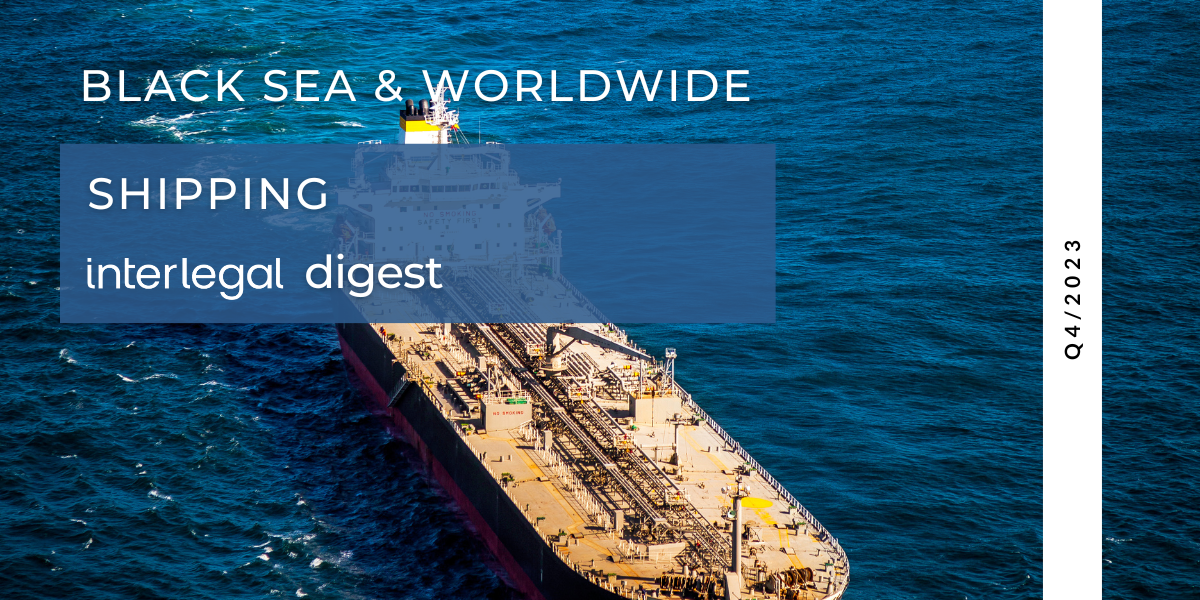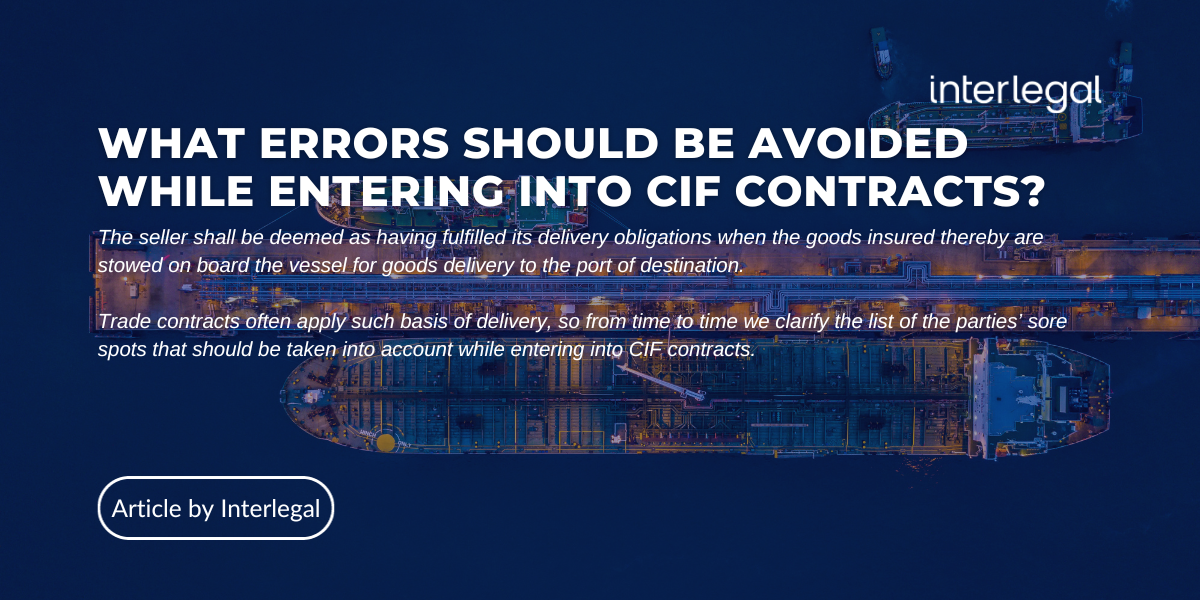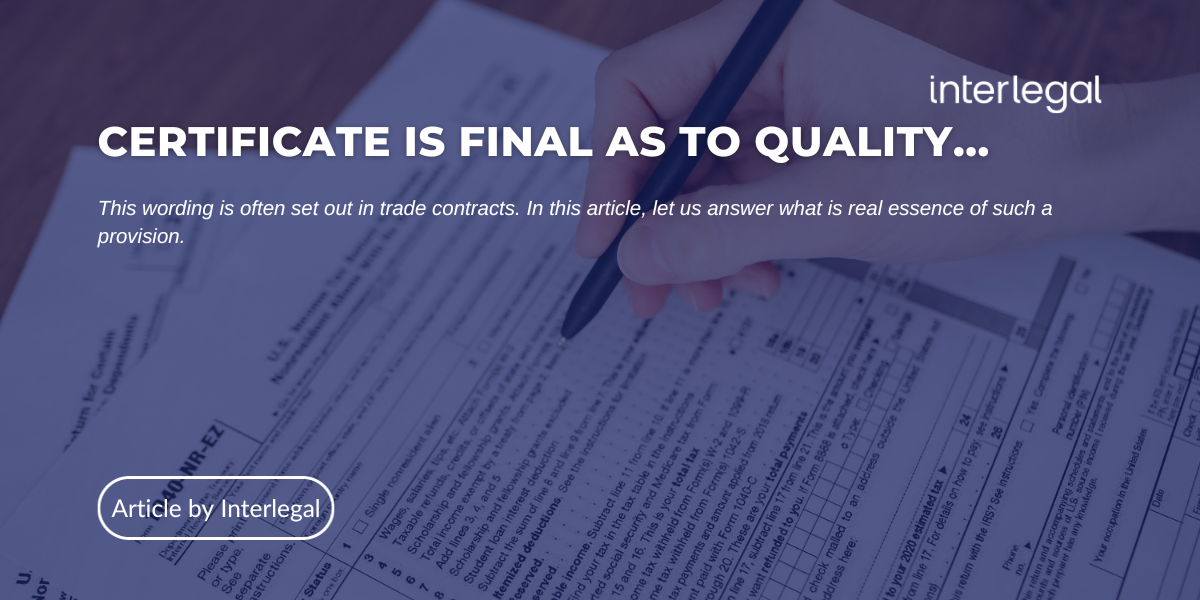Legal support for agricultural traders: an interview with a partner of a law firm
28 October, 2024
62
Today we will talk to Artem Skorobogatov, a partner at Interlegal, a law firm specializing in providing legal services to agri-traders and companies involved in the transportation of grains and oilseeds. Mr. Skorobogatov will share his experience, talk about the development of the practice and the challenges that the company helps agri-exporters to overcome in their daily work.
– How did your legal career begin?
My legal career started while I was a student at the National Law Academy, which I graduated from in 2001. By the fourth year of my studies, I had already begun working at the Promtex company, under the leadership of Alexander Zakharov. In the 90s, this company was one of the pioneers in the development of the logistics and trade market in Ukraine. This experience gave me my first important skills and an understanding of how the international trade and logistics business operates, and also built up a strong immunity against working in the civil service, as I frequently encountered not the best of its representatives.
After that, I had a short period of work at the European Insurance Alliance company, which also provided me with valuable experience in another area – risks and claims settlement mechanisms. However, everything changed when I joined a small (then) law firm, founded in Odesa in 1995. It was a team of about ten lawyers working side by side under the leadership of Artur Nitsevych. At that time, no one could have predicted that in 20 years, the company would grow to such a scale and that the Interlegal brand would be known to almost everyone in the industry. I grew up together with the company, advancing from intern to partner, developing my expertise in legal support for both national and transnational businesses.
– How did agri-export become a focus of your practice?
From the very beginning, our firm’s primary practices were centered around the maritime business and maritime law, which is quite natural for a company founded and developed in Odesa, the main sea gateway of a large and industrially developed Ukraine. We successfully drafted contracts, consulted freight forwarders, terminals, shipping agents and crewing companies, arrested and released vessels all over the world, recovered freight and demurrage, registered companies abroad and opened accounts for them. These tasks shaped our reputation as the No.1 experts in maritime law and international trade, first in Ukraine and later, with the opening of offices in Turkey, Romania, Bulgaria and Georgia, throughout the entire Black Sea region.
Agri-export became a logical and organic extension of our development, as the main exporters we worked with were agrarians, and their main export channel is the sea. We realised in time that agro + sea in Ukraine is here to stay, if not forever, then at least for a number of generations.
And that we can be useful to agribusiness not only in solving issues with non-payments and non-deliveries, but also in development – helping them enter new markets, optimise delivery terms, choose transportation methods, set up corporate structures and much more. Our company began providing legal support at all stages of grain and oilseed exports, from the field to the final buyer.
– Who were your first clients?
Since our initial services for traders were maritime transportation consulting, we started working with all segments of agri-trade. In just a few years, our clients included companies like CHS, Cofco, Baywa, Al Ghurair, Posco International, Synopharm, VA Ukraine, Orexim, Sungrain, UMG, Optimus, Quadra Commodities, and many others.
– How active was your marketing at that time?
We were actively engaged in marketing to convey the value of our services. We offered and successfully held seminars, workshops and roundtables. I made presentations at 3-4 conferences a year, analysing dozens of practical cases.
I remember participating in the first agri-conference in Crimea, organized by APK-Inform. I presented a report on ‘Claims Settlement in the Sea Transportation of Grain Cargoes’.
The conference Grain & Maritime Days in Odesa has been bringing together hundreds of participants for more than 10 years. In 2019, before the pandemic, the conference had 600 attendees from 30 different countries. After one of the conferences, we even created an after-party chat that gathered more than a hundred people and lasted for several years – perhaps it is still alive today.
Our products, such as LegalCare and corporate training on export contract execution, have played a significant role in enhancing the legal expertise of a generation of execution and trade professionals.
We also write unique books that hold honorable places in the libraries of many successful agricultural companies and universities in Ukraine. By the way, they can be downloaded from our website if you know the right link – I am happy to share it with your readers (https://interlegal.com.ua/interlegal-books/).
– Which agrarians are currently on your client list?
Today, our clients include large agricultural holdings that own land and processing facilities, such as MHP, Kernel, Astarta, LNZ, TAS-Agro, NZHK, Ukrlandfarming, as well as Ukrainian and foreign traders, such as 3F Group, Orexim, Bulkexim, Cofco, Olam, Prime Trading, Arista Trading. We are grateful to the clients who have stayed with us for many years.
– How do you manage to provide services if your clients are in dispute with each other?
Conflicts of interest are quite common in such a tight market as the Black Sea. We have a strict protocol for checking and handling situations where we identify a conflict. We always warn both parties of its existence and either decline to assist, recommending one of our colleagues, or offer our help in resolving the issue as a mediator. In almost 30 years of practice, we have never been accused of unethical behaviour by any of our clients.
– Do customers complain? Is there any reason to?
Complaints are quite rare; we have an internal KPI that the number of complaints should be less than 1%. If dissatisfaction is expressed, it means that the client wants our service to improve since they chose us. Our task is to address the shortcomings and meet their expectations.
In general, Ukrainians (including us) are accustomed to good service, especially in the terms of speed. We have a large team and are used to handling cases quickly. When we can’t provide the same speed of service to a client abroad, challenges inevitably arise. “Mañana,” “Inshallah,” “2-3 Egyptian days,” and other timeframes common to a number of destinations often provoke frustration among clients. We have to use our reserves and show patience, taking the hit. However, we constantly search for and successfully find partners who work faster than their local counterparts. That’s why we have more than 60 associated offices around the world – the same specialised lawyers we are willing to trust. A power of attorney in Cyprus in one day, a ship arrest in Turkey in two days or an account seizure in Spain within a few weeks – these are easily achievable.
– Who are your competitors? How do you differentiate yourself from them?
When you practice in the maritime and export sector, you have to be a cut above the competitors in terms of expertise and speed of work. Lawyers practicing maritime law or logistics often lack a sufficient understanding of the specifics of grain and oilseeds transportation, while those who have worked with agricultural producers are often unskilled in maritime issues. From the outset, our main advantage has been our experience and expertise at the intersection of several legal frameworks, practices and jurisdictions. With a mandatory project work on each case, which ensures fast and seamless service, we are truly one of the best in this field. Of course, today there are competitors in certain areas, but very few who have such a deep understanding of what happens to a cargo of grain or oil throughout the entire transportation process – both from a legal and practical perspective. We can not only identify the causes of complications but also anticipate potential scenarios, offering solutions in advance.
In addition, we have our own offices in Istanbul, Constanta, Varna, Batumi and Cyprus, where experienced local partners work.
Also, as I have already mentioned, we have our own network of associated offices in dozens of countries, which allows us to quickly connect and provide services in most of our clients’ destination ports around the globe.
In our field, we are more precise, faster, more experienced and more practical, as our clients constantly point out in their feedback. They greatly appreciate the ability to get fast, practical advice on any subject related to their business and our specialisation – at any time and for any city where their goods or transport are currently located.
– Tell us about your team.
Today, our team consists of several legal departments with more than 50 professionals, united by common corporate standards. The departments are managed by my partners. Oleksiy Remeslo handles trade disputes in dozens of GAFTA and FOSFA arbitrations. Karyna Gorova provides assistance on all legal issues related to maritime and land transportation, disputes with carriers, and their defence. Iryna Voevodina is a corporate universe: companies, accounts, taxes, inheritance, partnerships and complex business schemes. Marketing, business development, HR and finance are in the reliable hands of Artur Nitsevich and Mykola Melnikov.
And there is also the service for yacht owners, among whom, by the way, there are a lot of agrarians as well. But that’s another story.
When we meet experts in the areas we practice daily, we are happy to invite them to join our team or find other forms of cooperation. We are also proud of the fact that alumni of our company, Interlegal, become sought-after professionals both in the legal business and in the legal departments of trading companies. This confirms our contribution to the industry’s development, as well as the highest level of our training, ethics and culture.
– What is your role in the company?
My first specialisation at Interlegal was related to customs practice. I worked extensively on container shipping issues. Even then we handled highly complex cases involving damaged or stolen ship consignments, sunken vessels, containerships flooded with oil, etc.
After the firm set its course on the agricultural sector, my focus changed significantly. Initially, my role involved building a portfolio of agri-trade clients, preparing legal products for them and developing the practice as a whole. Today, clients from the agricultural sector benefit from the services of all our departments. I currently manage a portfolio of Ukrainian agricultural holdings, as well as oversee complex cases that are at the intersection of different practices, legal systems and offices. Additionally, I support business processes related to the management and development of relationships with our clients, which allow us to maintain a high level of service at all stages of interaction.
– What were the most challenging or interesting cases in your practice?
Over the years, we’ve handled many complex cases. The most demanding and complicated ones were related to situations where objective circumstances, such as government export policies, price volatility or military action, put large production or trading companies on the verge of bankruptcy. I’ve had several such cases in my personal practice, and I’m proud to say that all of them were successfully resolved through negotiations. None of these cases went to court or arbitration. All businesses continue to operate successfully.
There were cases where clients received their money 12 years after a general average on a container ship, and others where we managed to save several million in a couple of days by retrieving the client’s goods from one of the scandalous terminals. I particularly enjoy cases where we can find a compromise solution which allows us to maintain both money and relationships between business partners.
– How has your practice changed since the beginning of the full-scale war?
The war has significantly affected the agro-export market. Many companies either closed their operations in Ukraine or paused them for a long time. I know of an example where the owner fled in February 2022, leaving behind his employees and obligations. But there are also other examples. While some hesitated and lost market share, others earned $50-80 per tonne.
Some companies are kicking themselves for refusing to sell their terminals on the Danube, while others, who bought a tanker fleet there, have long since paid it off with long-term contracts. There were difficulties with the export of the 2021 harvest, and companies brought grain to the grain corridor without paying attention to force majeure clauses, and then tried to negotiate with terminals that demanded $20 per tonne for loading onto trucks. There were numerous cases of long-term vessel delays before the Bosphorus or at Sulina. We estimate that Ukrainian producers have overpaid about a billion dollars due to fleet delays caused by artificially created queues. Of course, there are also cases of compensation for damages from the actions of the russian federation concerning stolen, damaged and destroyed property belonging to our clients – ships, elevators and terminals.
But overall, there was nothing particularly new for our practice, just a change in scale and specificity.
– What are your plans for the future?
We plan to continue expanding our services, with a particular focus on new markets and trends in the agricultural sector. Recently, we opened an office in Cyprus to support clients in European jurisdictions and banks, and we are actively working in the Black Sea countries, especially Romania, whose role as an exporter and transit country for agricultural products has grown significantly. In addition, we are now represented by local partners in Kazakhstan.
Our goal is to be a reliable partner for our clients in all jurisdictions where they operate today and plan to operate tomorrow. It is noteworthy that the overall share of cases involving laws other than Ukrainian and English currently accounts for more than half of the firm’s caseload.
We believe in Ukraine’s future and actively support the Ukrainian army. Some of our employees are currently serving in the military and even there they keep in touch with clients.
We know for sure: everything will be Ukraine!

